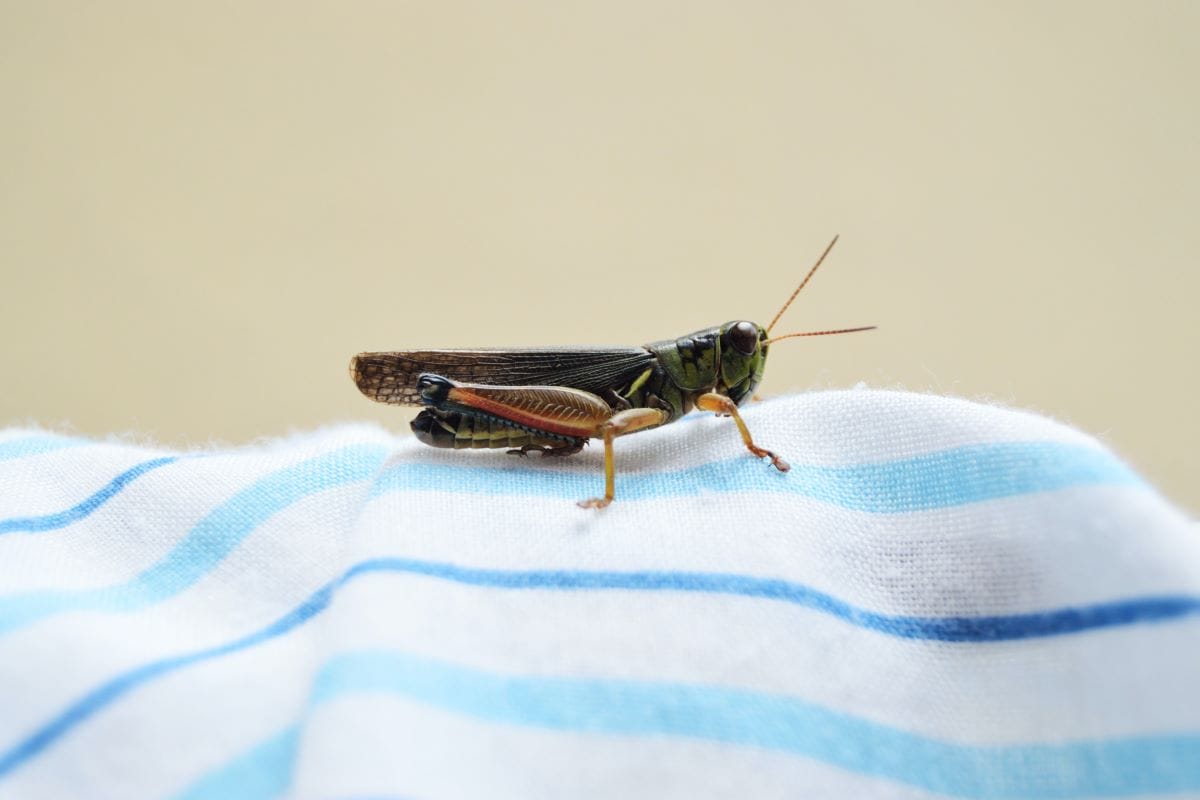Crickets are charming insects when they chirp in the evening, adding to the symphony of nature. However, when these nocturnal creatures invade your home, their constant chirping can quickly become a nuisance. Beyond the noise, crickets can cause damage to fabrics and even nibble on plants. If you’re looking to find out how to keep crickets away from your home, you’re in the right place.
In this Redfin article, we’ll explore effective strategies and natural remedies to deter crickets and maintain an insect-free environment in and around your house. Whether crickets have invaded your house in Tacoma, WA, or you’re looking to keep them out of your home in Sacramento, CA, these tips will go a long way toward keeping your space free of these pests.

1. Maintain a clean yard and garden
Crickets are drawn to cluttered and overgrown areas, as they provide ideal hiding spots and sources of food. To deter them, keep your yard and garden well-maintained. Trim overgrown plants, remove leaf piles, and store firewood and other debris away from the house. This will eliminate potential cricket hiding places and reduce their attraction to your property.
“As fall approaches many bugs will come in seeking warmer temperatures,” says Ryan Barnett of Pied Piper Pest Control. “For field crickets, one of the most important things is to keep grass mowed and moisture away from the home or property.”
Renovating your home?
Find out what your home's worth, edit facts, and see the impact of home projects.
2. Use proper outdoor lighting
Renovating your home?
Crickets are also attracted to light sources, especially during the night. Consider using yellow or sodium vapor lights outside your home, as they are less attractive to insects like crickets. Additionally, use curtains or blinds to prevent indoor light from spilling outside, which can draw crickets closer to your home. According to David R. of Memorial Maids, a Houston-based cleaning company, turning your outdoor lights off will go even further to discourage crickets from hanging around your home.
3. Seal entry points
Inspect your home for cracks, gaps, and other entry points where crickets can sneak in. Seal these openings with caulk or weather stripping to create a barrier. “One of the best remedy’s we’ve found to keep crickets out of your home, is to use spray foam to fill in any cracks along the perimeter where they are getting in,” says Jonathon H. of Maid to Change, a Houston-based cleaning company. Pay special attention to doors, windows, and the foundation. This keeps crickets out and improves your home’s energy efficiency.
“As a professional cleaning company, our top recommendation for keeping crickets at bay is to maintain a pristine environment, says Kenyon Berry of Berry Swift Cleaning. “This includes removing any food sources, such as crumbs and spilled pet food, which might attract them. Additionally, sealing cracks and gaps in your home’s exterior can be highly effective in preventing these unwanted guests from entering your living space.”
4. Remove food sources
Crickets are scavengers and will eat a wide variety of things, including paper, fabric, and organic matter. Keep your home clean and free of crumbs, spilled food, and damp areas. Properly store pantry items in airtight containers to eliminate food sources that might attract crickets.
“To keep crickets out of your home, it is important to eliminate food sources and maintain a clean environment,” says Altynay Tokocheva of Superb Maids Houston. “By combining regular cleaning and proper food storage, you’ll make your home less appealing to crickets and reduce the likelihood of an infestation.”
5. Use natural repellents
Several natural substances act as cricket repellents. Sprinkle diatomaceous earth or borax in areas where crickets are likely to hide or enter. These substances are safe for humans and pets, but can be abrasive to the insects’ exoskeletons, leading to their demise.
“Crickets can cause property damage, specifically to clothing, carpets, and other areas covered in fabric,” says Michael Nirenberg, owner of 504 Clean Dat. “As an eco-friendly cleaning company, we suggest using natural repellents such as white vinegar or essential oils like peppermint, lavender, or citrus to keep crickets out of your home. Mist in areas where crickets are prevalent, for example entry points and cracks and crevices in doors and windows.”
In addition to certain natural oils with strong scents, Kedrick Levy of ViroGerm also suggests using cedarwood chips around your home to deter crickets from entering your home.
6. Try sticky traps
Sticky traps, available at most home improvement stores, can be effective in catching crickets. Place them in areas where crickets are commonly seen or heard, such as basements, garages, or near windows. The crickets will get stuck on the adhesive surface, making them easier to get rid of.
7. Employ natural predators
If you’re looking for a reason to get a cat or dog, pets can serve as a cricket repellent. Installing a bird feeder in your yard can attract natural predators to the area, further discouraging crickets from hanging around and eventually entering your home.
Looking to save money on your mortgage?
8. Consult a professional
If your cricket problem persists despite your best efforts, consider seeking help from a pest control professional. They can assess the situation and recommend appropriate, eco-friendly solutions to resolve the issue.
“Professional intervention is crucial for identifying and addressing hidden nesting areas that may contribute to persistent pest issues,” advises Jett Hayes of Eastside Exterminators. “Their expertise not only resolves the immediate problem but also establishes preventive measures to safeguard your home from potential future infestations, ensuring a long-term solution.”
In conclusion, keeping crickets away from your home requires a combination of preventive measures and humane deterrents. By following these strategies, you can create an environment free of crickets and other pests that allows you to enjoy the tranquility of your home without the background chirping of these insects.


























 United States
United States Canada
Canada